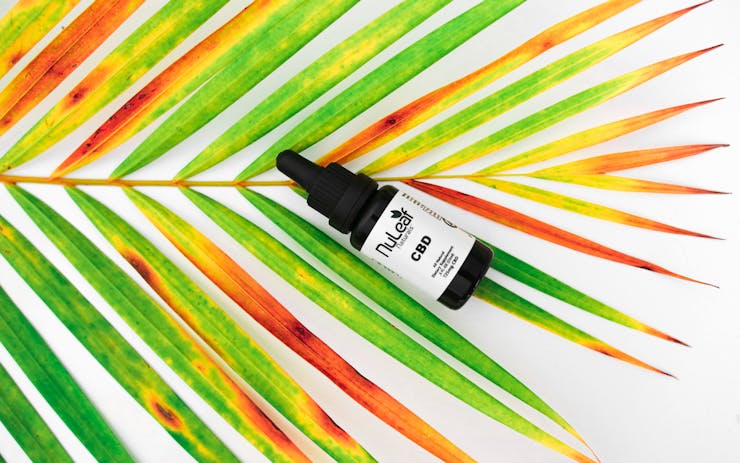This article is presented by NuLeaf Naturals, a leading provider of premium CBD products since 2014.
It’s a big time for cannabidiol, the cannabis component more commonly known as CBD. CBD-rich products like oils, as well as infused goods like CBD edibles, comprise a booming industry. And following the passage of the Farm Bill earlier this year, it’s become easier than ever to cultivate and source domestically produced CBD-rich hemp cannabis, meaning that accessing CBD extracts could soon get even easier for consumers across North America.
While interest in CBD has never been higher, research into this cannabis compound is lagging behind enthusiasm about it. Historically, the classification of cannabis as a controlled substance has made research about the plant and its components difficult to conduct. As a result, rigorous scientific studies of cannabinoid molecules like CBD have been few and far between.
That’s starting to change, with increased access and weakening stigma around CBD making it possible for researchers to pose and answer questions about this molecule and the impact it could have on human health and wellness. As basic research around cannabidiol steams ahead, here are some of the big questions scientists will be looking for answers to.

The science of CBD dosing is poorly understood so far. (Courtesy of NuLeaf Naturals)
What’s the Right Dose of CBD?
Details on appropriate dosing are front and center on any over the counter medicine, where you’ll find advice on the appropriate size of a dose, whether its measured in drops, pills, sprays or something else entirely. That’s because the size of a dose can make a lot of difference in the effects of a compound.
One of the unpleasant facts about being in the early stages of CBD research is that there’s not much data on what doses of CBD are appropriate for what conditions. While studies suggest that CBD could hold some promise for a wide variety of uses from battling anxiety to aiding sleep, there’s little guidance available on how much CBD makes a good dose, and how effective doses might differ across conditions or individuals.
While many consumers report experiencing beneficial effects from CBD, the lack of reliable dosing information means that finding the right dose is still a matter of trial and error. If CBD is to continue earning the trust of customers and inspire the interest of new adopters, the industry will need to provide consumers with reliable guidelines on the amount of CBD that’s right for the result they’re seeking.
What Difference Does CBD Delivery Make?
There are many ways to consume CBD, from vaping CBD concentrates or taking an oil under your tongue to eating an infused treat or applying a topical salve, to name just a few. But there’s no reason to think that all these options will have equal efficacy for every condition.
That’s because it’s not just dosing that effects how a substance interacts with the body—it’s also how that substance is introduced. For evidence of this, look no further than how two aspirin will affect a headache when you swallow them with a glass of water, and when you just rub the pills on your forehead.
Just as research is needed to unravel the facts behind what effective doses of CBD look like for different purposes, there’s also a need to understand how delivery methods impact that effect of CBD. By conducting further study into this question, which is currently in short supply, researchers can shed light on what kinds of CBD products might hold the most promise for consumers based on their specific needs.

Oils and tinctures are among the most common ways to consume CBD. (Courtesy of NuLeaf Naturals)
How Does CBD interact with Other Cannabis Compounds?
CBD is just one of dozens of cannabinoids produced by cannabis plants. That includes famous relatives like THC, and rarer, little-understood cannabinoids like CBG. These cannabinoids, in turn, are found in cannabis alongside compounds like terpenes, which have been found to affect and modulate the character of cannabis.
Taken together, the impact of these compounds working in concert is known as the entourage effect, which describes how cannabis compounds adjust and modulate one another’s effects. While early findings suggest that the presence of CBD can temper the psychoactive impact of THC, there are still a lot of other facts left to find about how CBD interacts with other cannabinoids.
This area of CBD research is further complicated by the fact that much of the current study around CBD only looks at CBD in isolation—not in relation to its many other cannabinoid counterparts. Meanwhile, CBD products that work to preserve the context of CBD, presenting it alongside other cannabinoids as it is found in nature, are becoming increasingly popular among consumers. Without a thorough understanding of how those other molecules can impact the action of CBD, though, it’s effects may be less predictable than they look on paper.
Cannabis scientists have their work cut out for them as they try to untangle the effects of CBD on its own from the interactions it has in concert with other cannabis compounds. But with more research into these substances being conducted than ever before, the future of cannabis research is looking bright, even if many definitive answers aren’t on the horizon quite yet.






